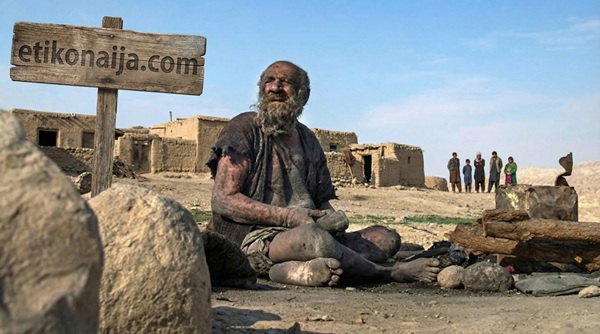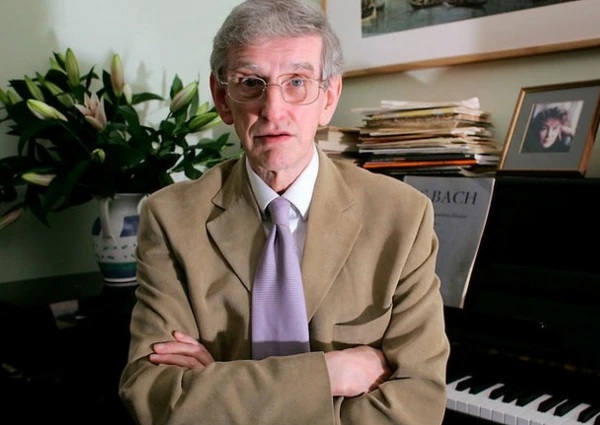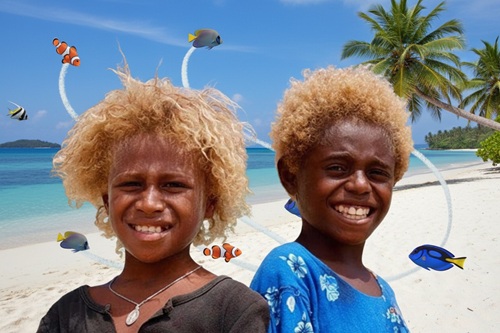In the ashes of one of the most devastating tragedies on American soil, a quiet story of heroism emerged—one that stretched from the dusty roads of Ebonyi State, Nigeria, to the burning towers of Lower Manhattan. Godwin Ajala, a Nigerian hero died saving lives during a terrorist attack on the United States. He is remembered in the United States as an American national hero who gave up his life for others to live. He died saving countless people who were escaping from the World Trade Center Towers on September 11, 2001.
Early Life in Nigeria (1968 – 1995)
Godwin Ajala was born on June 9, 1968, in Ihenta, a modest community nestled within the eastern Nigerian state of Ebonyi. His upbringing was shaped by the shadows of the Nigerian Civil War, a brutal conflict that had engulfed the region due to the short-lived Republic of Biafra’s attempt to secede. As the son of a local retailer, Ajala grew up during a period of reconstruction and national healing.
Despite the disruptions caused by war, Ajala remained steadfast in his academic pursuits. He eventually trained and became a practicing lawyer in Nigeria. Life in Ihenta was challenging but filled with familial bonds and dreams of something greater. With a wife, Victoria, and three young children—Onyinyechi, Uchechukwu, and Ugochi—Ajala harbored ambitions that far exceeded the limited opportunities available in his homeland.
In 1995, driven by a burning desire to uplift his family and provide them with a brighter future, Ajala made the life-changing decision to emigrate to the United States. The move was not one of luxury or ease; it was a calculated leap of faith into the unknown.
Struggles and Aspirations in New York (1995 – 2001)
Upon arriving in the U.S., Ajala’s reality was far from the American dream he had envisioned. The initial years were filled with hardship. He worked multiple menial jobs just to make a living in the United States. Yet, he never wavered from his long-term goal: to qualify as a lawyer in the United States and reunite his family.
After numerous searches, he was able to secure a job as a security guard at the World Trade Center’s South Tower, also known as 2 World Trade Center. His post was at the ground-floor concourse, a position that provided him a panoramic understanding of the building’s layout and movement.
Simultaneously, Ajala enrolled in preparatory courses for the New York State Bar Exam. Due to financial constraints, law school in the U.S. was not an option. Instead, he opted for more affordable bar exam prep programs. Despite his relentless efforts, he failed the exam three times. Still, his determination did not falter.
Friends who knew him during this time recall a man of incredible discipline. Ajala would work from 6 a.m. to 2 p.m., then dedicate another 6 to 8 hours at home to study. His roommate and fellow security guard, Christopher Iwuanyanwu, described him as a “happy and very lovely” man, standing nearly seven feet tall, and exuding warmth and positivity.
Ajala lived frugally in Jamaica, Queens, often sending money home to Nigeria. He entrusted Christopher to deliver cash and letters to his family during visits. The youngest of his children, Ugochi, was only one year old when Ajala last saw her.
The Morning of September 11, 2001
On that fateful Tuesday morning, Ajala was on his regular shift when the unimaginable occurred. At 8:46 a.m., American Airlines Flight 11 struck the North Tower (1 WTC). Seventeen minutes later, United Airlines Flight 175 crashed into the South Tower—the very building where Ajala was stationed.
Panic spread like wildfire. Alarms blared, smoke filled the air, and confusion gripped everyone. Amid the chaos, Ajala remained calm. From his security post in the lobby, he became a beacon of direction and hope. Rather than fleeing, he took it upon himself to assist in evacuating the building.
Witnesses later reported that Ajala held the lobby doors open, ushering people out of the building and away from harm. He ventured back inside repeatedly to guide more people through the darkened, smoke-filled corridors. For many, he was the last friendly face they saw before escaping the nightmare.
Eventually, overwhelmed by smoke inhalation and physical exhaustion, Ajala collapsed. He would later be found by rescue workers, who rushed the unconscious Ajala to the New York Downtown Hospital. He slipped into a coma and never regained consciousness. On Sunday, September 16, 2001, at precisely 5:05 p.m., Godwin Ajala was pronounced dead. He was just 33 years old.
Aftermath and Burial
Ajala’s death sent ripples through both the Nigerian and American communities. He was one of only 11 security guards who perished in the attack and the only Nigerian listed among the nearly 3,000 victims of 9/11. His actions were posthumously recognized as heroic. Though he never wore a cape or held a title, Ajala had exhibited the true essence of bravery.
Initially, it was Victoria who was expected to accompany her husband’s remains back to Nigeria. But due to logistical delays, Christopher Iwuanyanwu undertook the solemn duty. He arranged for the burial and preserved Ajala’s personal belongings, including heartfelt letters written to Victoria.
A Family Torn Apart (2001 – 2020)
Tragically, Ajala’s death, which should have unified his family in shared mourning, instead became the center of a deeply bitter and protracted legal battle. Shortly after 9/11, Victoria traveled to New York on a temporary visa. Rather than returning to Nigeria, she remained in the U.S. and later moved to Canada, where she pursued nursing studies and eventually gained citizenship.
Meanwhile, her three children were left behind in Nigeria, reportedly under the care of their paternal grandmother, Mabel Ajala. In court affidavits, they described how Mabel, despite her advanced age, had borne the responsibility of raising them. They also told the court that their mother, Victoria had abandoned them.
In 2003, Victoria was made co-administrator of Ajala’s estate along with Iwuanyanwu. She went ahead to file for claims with the September 11th Victim Compensation Fund with the help of Iwuanyanwu. The compensation fund then awarded $1.46 million to Ajala’s estate. However, this is where the legal complications began.
Under New York law, the money was to be divided among the next of kin—Victoria and the three children. But Mabel, claiming that Victoria was never legally married to her son, contested her eligibility. She even obtained a Nigerian court ruling supporting her claim. In 2005, she acquired legal guardianship of the children, effectively freezing the release of the funds.
Years passed, and the case lingered in Manhattan Surrogate’s Court. A judge eventually dismissed Mabel’s claims and ruled that Victoria and Ajala were, for all intents and purposes, a married couple. Still, Mabel’s actions had a lasting impact. She was removed from the case, and independent guardians were appointed for each child.
In 2023, Victoria and Iwuanyanwu filed a final accounting plan suggesting Victoria receive 42.5% of the compensation, while the children would receive between 16.1% and 23% each. Yet even this did not bring closure. The two eldest children formally objected, demanding their grandmother receive their mother’s share.
In their affidavits, they painted a picture of abandonment and betrayal. Onyinyechi, now 21, wrote, “Ever since the burial of my dad, I have never been in contact or had anything to do with my mother.” Her brother Uchechukwu, 19, alleged that Victoria had remarried and started a new family in Canada, having no further ties or dependency on their late father.
Victoria, on her part, maintained that Mabel had abducted the children and kept them from her since 2003. Her legal team accused Mabel of manipulating the situation for financial gain, having already received $380,000 in insurance payouts.
Reflections and Legacy
While the legal entanglements continued, the core of Ajala’s story remained unchanged: a man who gave his life for others. For his friend Iwuanyanwu, the pain of that loss never faded. He still recalls the day he sat beside Ajala’s hospital bed, witnessing the final moments of a life lived in courage and sacrifice.
Today, Christopher works as a maintenance man at Rockefeller Center, but his memories of Ajala remain vivid. He has tried multiple times to reach out to the children and resolve the conflict, but they remain distant, still grieving in their own ways. He also called on the children to end the case because it has gone on for far too long.
Ajala’s journey was one of resilience, sacrifice, and heroism. In an age often dominated by headlines of division and fear, his story serves as a reminder of the quiet power of everyday people who, when faced with the worst, rise to become the best of us.
He died far from his homeland, but his legacy spans continents. In Nigeria, his name is remembered with pride. In the United States, he is honored among the thousands who lost their lives. And in the hearts of those he saved, Godwin Ajala remains a hero whose final act spoke louder than words ever could.






